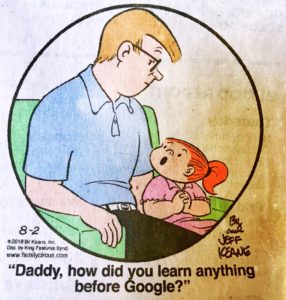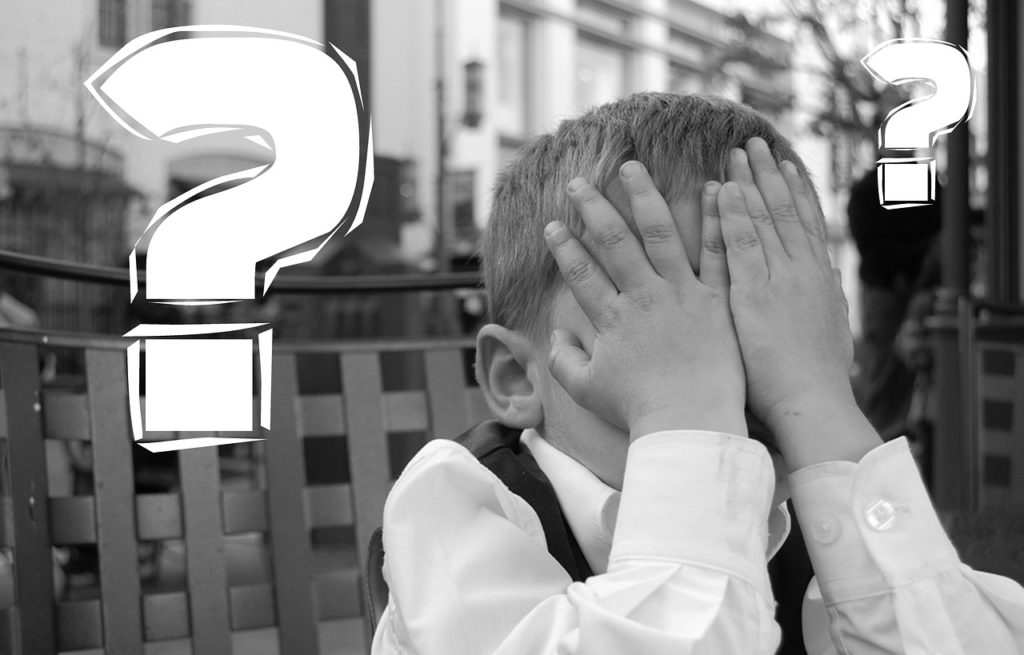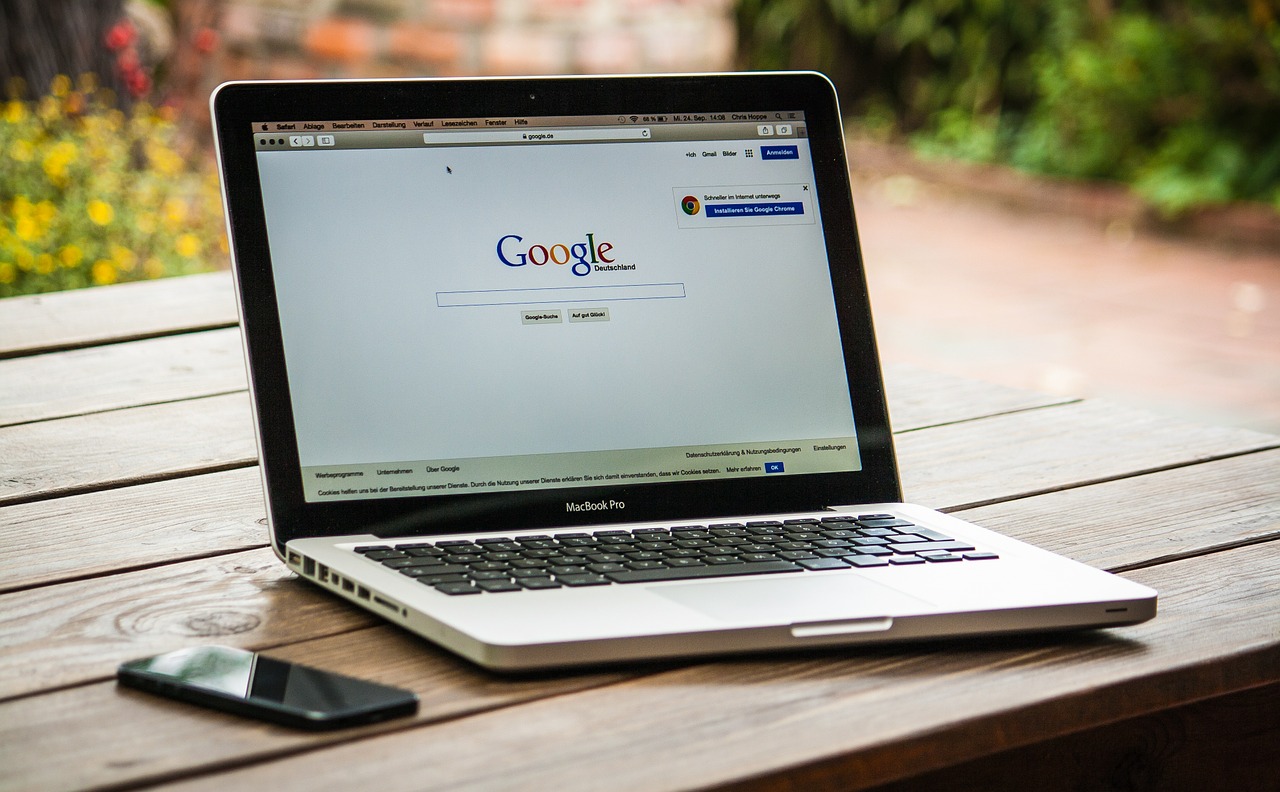A Travel Guide for Life, Faith, and Relationships!
 Not too long ago, my wife, Laura, showed me a Family Circus comic. It made me laugh; it also made me think. How did we learn stuff before Google?
Not too long ago, my wife, Laura, showed me a Family Circus comic. It made me laugh; it also made me think. How did we learn stuff before Google?
We live in the information age. There is more information in your phone than your parents could ever find at the local library. Recently, Laura got rid of our encyclopedia set. “Why keep them when we don’t need them?” she said. “They’re just collecting dust.” True, but I thought they might be worth something someday as antiques. (Yes, I’m the packrat in the family.)
Smartphones and Google (or your search engine of choice) have changed our world more than the invention of the printing press changed society in 1439 AD.
Want to know when the printing press was created? Google it!
Want to know where the closest Starbucks or pizza place is? Google it!
Want to check out a church before you visit? Google it!

To be clear, I love technology. I find the growth of our knowledge base invigorating. It’s incredible that I can pull out my iPhone and search for just about anything, anywhere on the planet.
Just for fun, I googled, “Blogs about Google” and I got 935,000,000 results in 0.57 seconds! It’s unbelievable what’s out there in the webosphere (Don’t Google that word; you won’t find it. Not yet).
Despite the power of the World Wide Web, there are some important things people discovered before the world of Google. I’m worried there is a whole generation missing out on some lessons I learned early in life.

- Information doesn’t always trump revelation. In other words, some things are best learned through experience, hands-on research, and good ol’ inspiration. I fear the ease of information gathering has made some people miss the beauty of discovery. Rather than dig into a topic or an experience, we let our thumbs do the walking. Information that is experienced is information that transforms. It’s not just something we read about, it’s something we now know through an encounter. So, information that leads to transformation is good; information that leads to merely amassing more data is not.
- Information is not always accurate. Back when I was a kid and the dinosaurs roamed the earth, if an encyclopedia got something wrong, they would correct the error and reprint the whole book. Nowadays, people slap something on the web, and it’s treated as gospel. “I know I’m right! I read it on the internet!” The art of critical thinking is almost lost in our society. We no longer analyze and evaluate with a view to improvement. Sadly, too many look for something on the internet to back up their false beliefs, and they ignore common sense and truth.

- Information must never take the place of being in a genuine relationship with others. Live. People. I can’t tell you how many times I’ve been in a group situation and most of the people have their heads bent over a blue screen as if they were praying to the smartphone gods. We have many “friends” on Facebook and a lot of followers on Instagram but too few true friends who look us in the eye and say, “You are more than just a digital buddy to me; you’re a living, breathing, human about whom I care deeply!” Google me, and you’ll find out a lot of things about me (some of which might surprise you). However, sit down and have a cup of coffee with me, and, hopefully, you’ll experience my love. Knowing about someone is okay; intimately knowing their heart is better.

So, I’m not advocating that you chuck your smartphone (unless it’s a Samsung Galaxy Note 7 on fire). I have no interest in returning to the Dark Ages. Be informed. Be educated. Be a Google fan.
However, be a human—one created in the image of a relational God—and be intentional about connecting with others at a meaningful level this week.
Remember, you don’t have to be old or suffer from technophobia to get your hands dirty and to discover something new and wondrous.

Don’t just Google about bugs with your kid. Go collect some in your yard.
Grab your binoculars and watch some birds in the wild.
Leave iTunes for a bit and sit down with a friend or two and write some new music together.
Trust me; it’s both wise and okay to take a Google sabbath from time to time.
You’ll be fine. I promise.

“How then does a person gain the essence of wisdom?
We cross the threshold of true knowledge
when we live in obedient devotion to God.
Stubborn know-it-alls will never stop to do this,
for they scorn true wisdom and knowledge.”
Proverbs 1:7 (TPT)


So true.
Love the quote “Information doesn’t always trump revelation.”
Pingback: The Top 10 Leadership Posts I Read The Week Of August 6th | Brian Dodd on Leadership